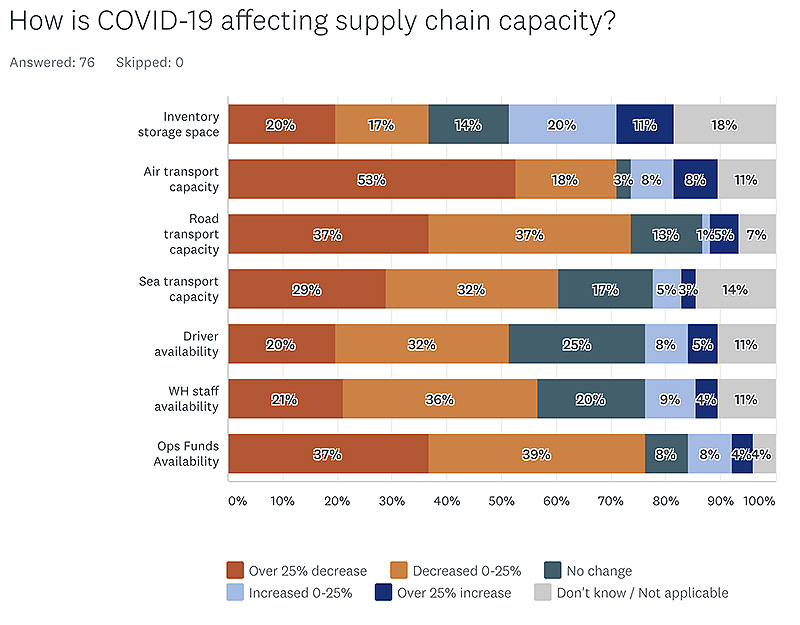Before COVID-19, East Africa’s economy was soaring ahead of other regions on the continent at about 7 percent annual growth. The pandemic and the imposed restrictions have since throttled economic activity – with significant impacts on local farmers and small agribusinesses. To make things worse, East Africa is also facing the worst desert locust infestation in decades.
Concerns arose that the double dilemma and the disruption of trade and logistics services could lead to food shortages, drive up prices and push many more into hunger. HELP Logistics partnered with the @Farm to Market Alliance (FtMA) and the Shippers Council of East Africa to test this hypothesis.
Our analysis shows that reduced transport and personnel capacity, longer lead times and higher costs have disrupted food supply chains. Border closures, protectionist measures and mobility restrictions have led to reduced food trade, prevented farmers from selling their produce and threatened the livelihoods of some of the most vulnerable communities.
